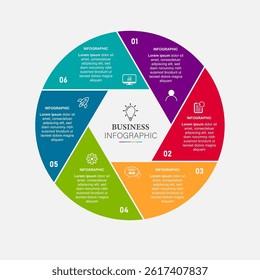Niger Set to Become Africa’s Fastest-Growing Economy by 2025: An In-Depth Analysis
In a recent announcement that has sparked significant interest among economists and international investors alike, the World Bank forecasts Niger as the continent’s leading economic growth performer in 2025. This West African nation’s rapid ascent is attributed to a combination of demographic advantages, targeted infrastructure investments, and comprehensive reforms designed to improve governance and stimulate business activity. As Niger navigates regional complexities, this article explores the underlying factors driving its projected economic boom and examines what this means for its social and economic future.
Unpacking Niger’s Economic Boom: Core Catalysts Fueling Growth
Niger is on track to outpace all other African economies in growth rate by next year. Central to this optimistic outlook are its abundant natural resources-particularly uranium, gold, and oil-that continue to attract substantial investment into mining and energy sectors. The government has prioritized upgrading critical infrastructure such as transportation networks and expanding energy access, which are vital for enhancing trade flows and luring foreign direct investment (FDI). These efforts have been complemented by reforms aimed at streamlining regulatory frameworks that encourage entrepreneurship and innovation within local markets.
Beyond resource wealth, Niger benefits from one of Africa’s youngest populations-a demographic dividend that promises a dynamic labor force capable of supporting diverse industries including agriculture and services. Emphasis on modernizing agricultural practices through technology adoption alongside investments in education and vocational training programs aims to harness this human capital effectively.
| Sector | Estimated GDP Growth Contribution (%) |
|---|---|
| Mining & Extractives | 26 |
| Agriculture & Agribusiness | 21 |
| Service Industries | 16 |
| Energy Production & Distribution | 11 |
| Civil Construction & Infrastructure Development | 9 |
Sustaining Momentum: The Role of Strategic Investments & Policy Overhauls in Niger’s Growth Trajectory
The foundation for sustained expansion lies heavily on continued strategic capital allocation across pivotal sectors like mining extraction facilities, agricultural modernization projects, transport corridors, renewable energy ventures, as well as digital infrastructure upgrades. Concurrently, policy reforms aimed at reducing bureaucratic red tape have begun creating an enabling environment conducive for both domestic entrepreneurs and international investors.
Diversification remains a key priority; thus fostering innovation ecosystems through enhanced education systems focused on science, technology, engineering-and mathematics (STEM)-alongside vocational skill development will be essential in mitigating risks associated with overreliance on extractive industries.
- Evolving Institutional Capacity: Strengthening governance structures ensures transparency while boosting investor confidence across sectors.
- Catalyzing Infrastructure Expansion: Upgrading roads networks coupled with expanding reliable electricity supply supports industrial activities nationwide.
- Nurturing Human Capital: Investing robustly in education reform equips youth with skills aligned with emerging market demands.
- Sustainability Focus: Integrating environmental safeguards within development plans promotes long-term resilience amid climate challenges affecting Sahelian countries like Niger.
Tackling Challenges Head-On: Infrastructure Enhancement & Education Reform as Pillars of Prosperity
Niger stands at a crossroads where bolstering physical infrastructure alongside revamping educational frameworks will determine the sustainability of its upward trajectory. Expanding roadways connecting rural areas with urban centers not only facilitates commerce but also integrates remote communities into national markets more effectively. Additionally,d eveloping renewable energy projects such as solar farms aligns perfectly with global trends toward clean power while addressing chronic electricity shortages hampering industrial growth.[Source].
The educational sector requires urgent attention-while enrollment rates have improved recently due largely to government initiatives promoting school attendance among girls and marginalized groups-the quality gap persists due mainly to insufficient teacher training programs and inadequate learning materials distribution.A renewed focus on STEM curricula combined with expanded vocational training centers can equip young people better for evolving job markets driven by technological advancements.[Source].
If these foundational pillars strengthen concurrently-with infrastructural connectivity improving hand-in-hand with human capital development-Niger could transform itself into an influential regional hub fostering inclusive prosperity across West Africa.
Main Insights: Charting Niger’s Path Toward Inclusive Economic Transformation
The World Bank’s forecast positioning Niger as Africa’s fastest-growing economy by next year underscores immense potential rooted in natural resource wealth combined with demographic vitality. However,sustainable progress hinges upon prudent management strategies emphasizing diversification beyond extractive industries along with equitable socio-economic policies ensuring broad-based benefits.[Further Reading].
This anticipated surge offers hope not only for accelerated GDP expansion but also improved living standards if accompanied by effective governance reforms targeting poverty reduction measures alongside enhanced access to quality education healthcare services throughout the country.
As global stakeholders monitor these developments closely,
the coming years will be decisive moments determining whether these ambitious aspirations translate into tangible outcomes shaping a prosperous future for all Nigerians.

